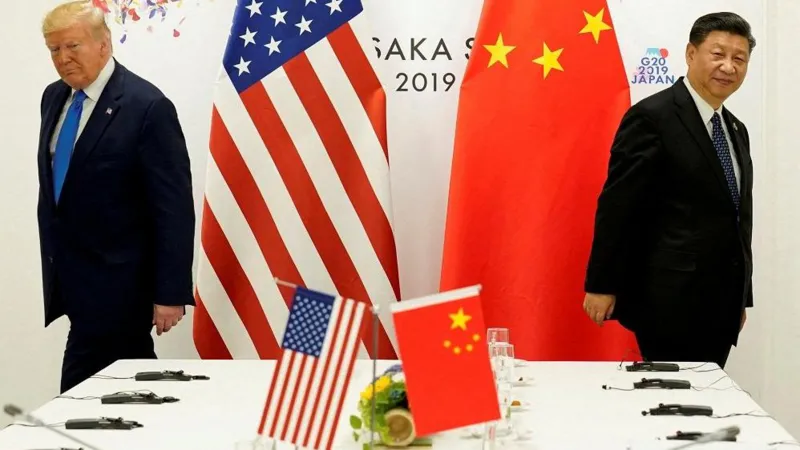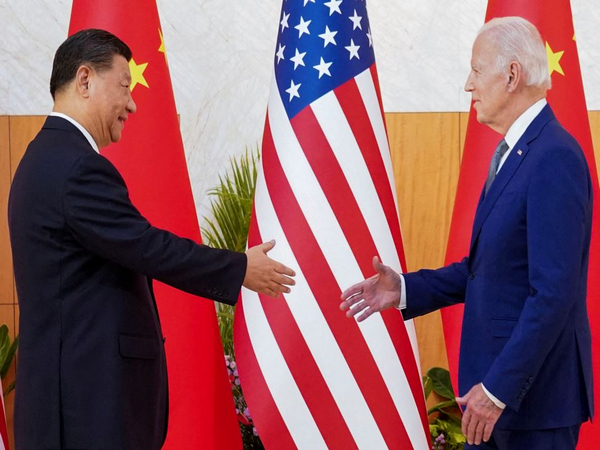
China slaps Trump’s U.S. with revenge – tariffs
Meaning of tariffs and how they work
Tariffs are taxes on imported foreign commodities. The companies that import the foreign goods into the country pay the tax to the government. Tariffs typically account for part of the price of a commodity. A 20% tariff on Chinese imports would mean charging an additional $2 on a $10 (£7.76) item. Firms can merely transfer some or all of the cost of tariffs to customers.
The US has tended to put lower tariffs on imports than other countries, so his reciprocal offer would lead to a sharp and dramatic increase in the tax levels and the prices consumers pay at checkout.

Trump and Xi Jinping photo
Why did Donald Trump decide to use tariffs?
Tariffs are a cornerstone of Trump’s economic policy. Trump believes tariffs will boost US manufacturing, preserve jobs, raise tax revenues, and grow the economy. China, Mexico, and Canada accounted for over 40% of US imports in 2024.
When he first threatened the new tariffs, the White House said the president was “taking bold action to hold [the three countries] accountable to their promises of stopping illegal immigration and preventing deadly fentanyl and other drugs from pouring into our nation”. Fentanyl is linked to tens of thousands of overdose deaths in the US annually.
The Trump administration accuses China as the origin of the chemicals, and Mexican gangs for illegally supplying it and running fentanyl labs in Canada. Canadian Prime Minister Justin Trudeau replied that Canada was responsible for less than 1% of fentanyl entering the US, and most was from Mexico.

Lin Jian, the foreign ministry spokesman
How China responded to Trump’s tariffs
China imposed a 10% tax on all their imports last month. Trump then said that imports of less than $800 would be exempted. China retaliated with its tariffs on 10th February, including a 10-15% tariff on some US agricultural products.
Beijing has also targeted several US aviation, defense, and technology firms by putting them on an “unreliable entity list” and subjecting them to export controls. On 4 March, the 10% duty was raised to 20%. China called on the US to resume negotiations with Beijing as soon as possible.
“If the United States continues to wage a tariff war, a trade war, or any other form of war, the Chinese side will oppose them to the bitter end,” foreign ministry spokesman Lin Jian warned.




